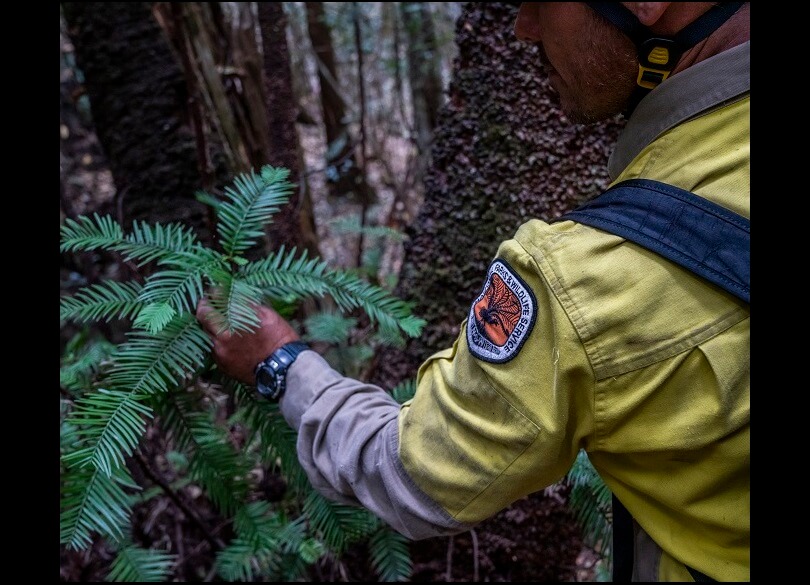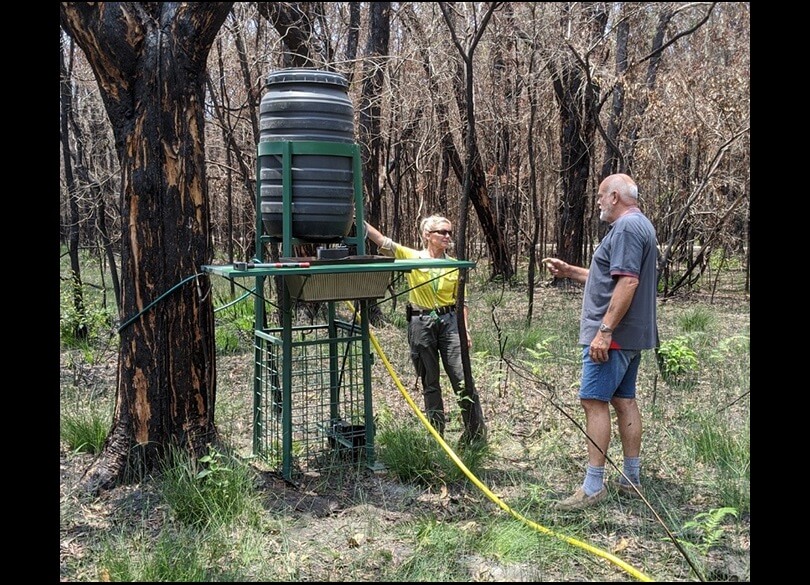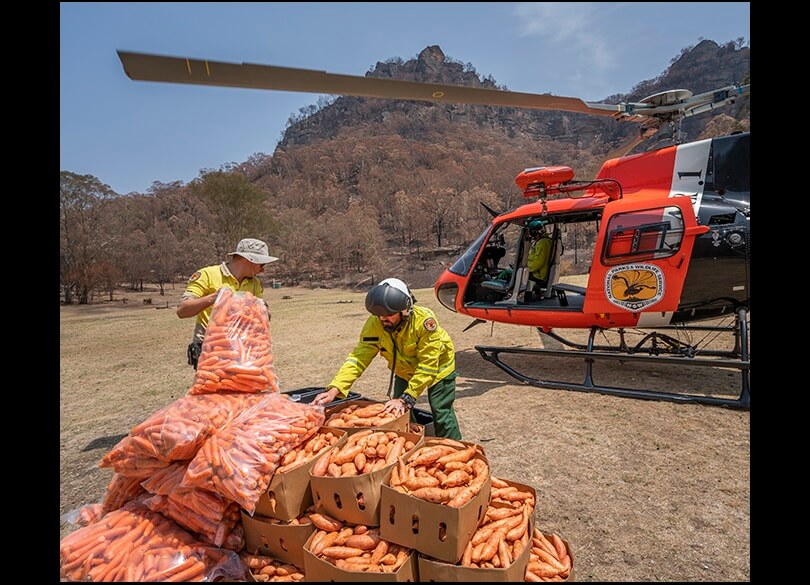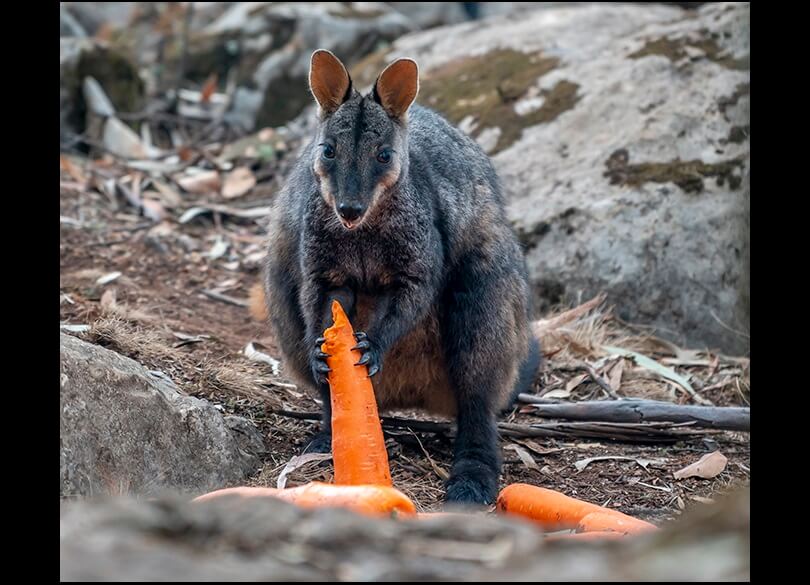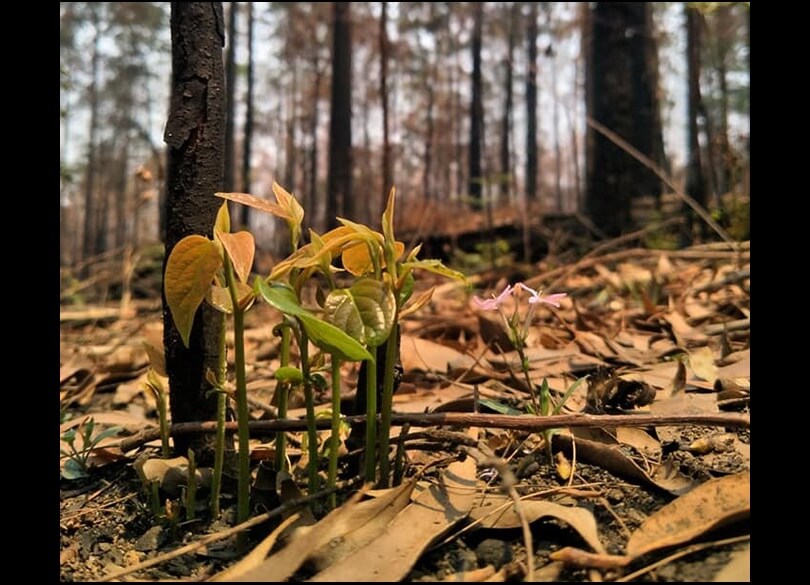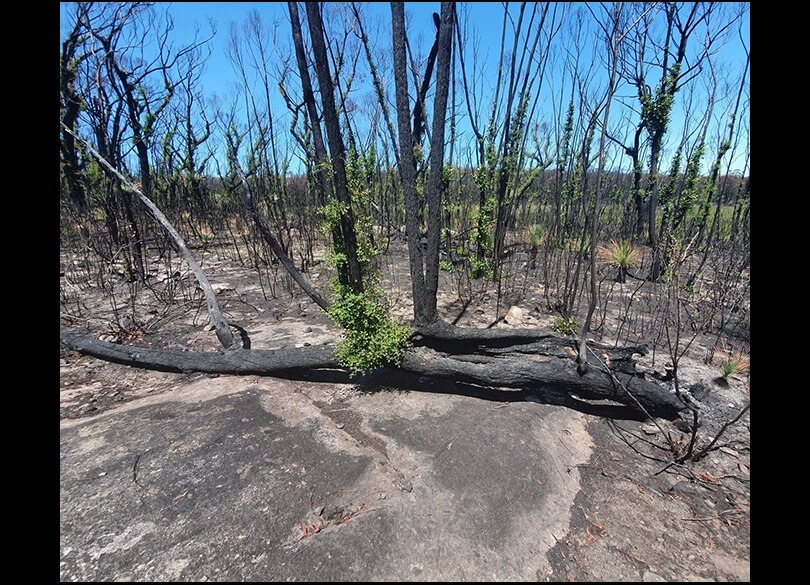Our most recent estimates indicate that more than 5.3 million hectares (6.7%) of New South Wales was impacted by the bushfires. This includes extensive damage in our national parks, with more than 2.7 million hectares of national park estate affected.
The bushfire season is ongoing. Our immediate priority is the suppression and control of existing fires to protect life, property and remaining habitat in our national parks. National Parks and Wildlife Service staff are working with Rural Fire Service and other fire agencies in direct firefighting roles and incident management teams.
What we are doing
Alongside our ongoing efforts to fight the fires, the NSW Government is implementing actions to support recovery of our wildlife and conservation values. Wildlife and Conservation Bushfire Recovery: Immediate Response January 2020 sets out the immediate actions we are taking to protect wildlife and support the recovery process for our natural environment.
This document outlines the first step of a longer-term plan to support native wildlife recovery.
Mapping the extent and severity of the damage
The full extent of the impact of the fires on wildlife is still emerging. Many research institutions along with government agencies are making efforts to assess the extent of the fires to help us with our recovery efforts.
Supplementary food, water and shelter
Many native animals that escaped the fires now face risks of starvation or dehydration – a situation made worse by the ongoing drought. Supplementary food, water and shelter are being provided to sustain native animals while their natural habitats recover.
Seed banking and insurance populations
Some animals and plants are at significant risk as a direct result of the fires. To give them the best chance of recovery, we are collecting seeds for banking and individual animals for care and emergency housing until it is safe to release them back to the wild or to provide an insurance population should they struggle to survive. Our teams are on the ground working with a range of organisations, including Taronga Conservation Society, the Royal Botanic Gardens Sydney and non-government partners.
Feral animal and weed control
Fire-affected landscapes leave our native animals exposed to feral cats, dogs and foxes. Our native animals are also competing for scarce food with feral deer, pigs and goats. Emergency feral animal control is underway to protect our native animals while their habitat recovers. This pest control will help farmers impacted by the fires. Post-fire weed control will also support the recovery of wildlife.
Support for wildlife carers
Injured wildlife needs specialist care to maximise their chance of recovery. Volunteer wildlife rehabilitators and veterinary professionals are on the frontline, rescuing injured wildlife. The NSW Government is providing resources to support wildlife rescue and rehabilitation. A total of $6.5 million has been committed for this work, including $1 million in emergency funding in response to the bushfires.
The recovery of our parks will be ongoing. This page will be updated as more information becomes available.
More information
- Fire extent and severity maps
- Help injured wildlifeopens a new window
- Donateopens a new window
- Helping wildlife in emergencies
- Helping koalas in emergencies
- Wildlife drinking stationsdownload file
- How to make a wildlife watering pod
- Volunteer for bushfire recoveryopens a new window
- Wildlife and Conservation Bushfire Recoverydownload file
